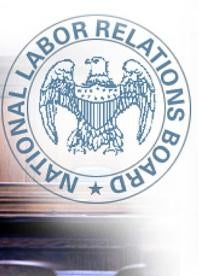An employer may discipline employees who engage in disloyal conduct by disclosing confidential information obtained in the course of their job duties, the Board’s Division of Advice has found, concluding that an employer did not commit an unfair labor practice (under Section 8(a)(1) of the NLRA) when it discharged an employee. IAM District Lodge 751, 19-CA-119268 (Div. of Advice Aug. 18, 2014).
This case shows where the line is drawn between employees’ rights to engage in protected concerted activity by sharing an employer’s “confidential” information and disloyal conduct not protected by the Act.
The employee-charging party was a payroll clerk/staff assistant in the accounting office for a local union. She had signed an agreement to maintain the confidentiality of information regarding the union’s personnel and operations. When she was told by the union’s secretary/treasurer that the employer would be revising its leave policy because of abuse by a certain clerical employee, she advised that employee that the secretary/treasurer had had said her conduct was a motive for changing the leave policy.
The employer-union suspended and later terminated the charging party for disseminating the confidential information. Finding no violation of Section 8(a)(1), the Division of Advice explained that disloyal conduct is not protected by the Act if “the information that was disclosed was of a type which the employer had a right to expect would be treated as confidential, such that the disclosure was fundamentally a breach of trust.” The Division of Advice noted that the information in this case qualified since it was regarding “the Employer’s concern about leave abuse and its investigation of an employee’s leave abuse.” The Division of Advice also found it noteworthy that the “Employer took several steps to maintain the confidentiality of personnel decisions and conversations about personnel decisions,” including requiring the employee to sign a confidentiality agreement. It concluded that, because she learned of the policy change and investigation “solely because of her job responsibilities…, [b]y repeating the impetus behind the change in leave policy and warning the employee under investigation, the Charging Party violated her duty to maintain the confidentiality of this information, and thus was lawfully terminated for breaching that duty.”
Although the Board often has found employers’ restrictions on employees’ dissemination of company confidential information to be overbroad and unlawful, employers may lawfully require employees to sign confidentiality agreements to protect legitimate confidential information. Such agreements should be narrowly tailored to include information that could be obtained only in the course of the employee’s job.





 />i
/>i


